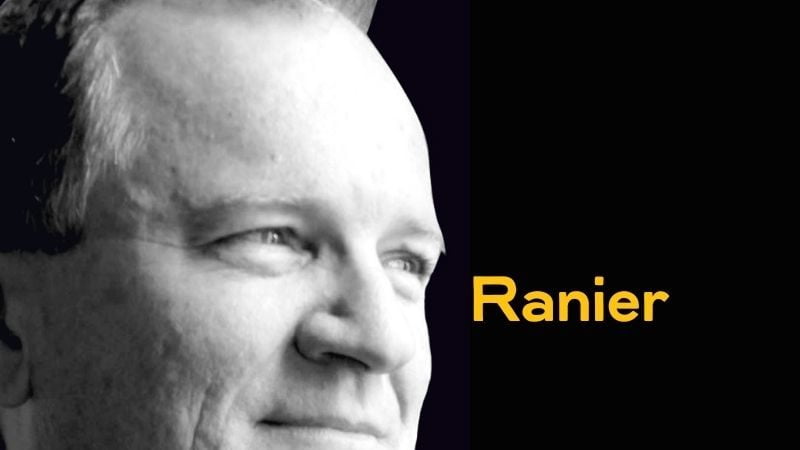It’s the season to be jolly and put cynicism to rest. Let us, therefore, be done with the cruel innuendos about Keith Schembri’s phone. Lies, all lies. There’s a perfectly innocent explanation that everyone is ignoring.
December must be the cruellest month for Schembri. This time last year, the press was still obsessively writing about the phone he lost a full month earlier — incidentally, just before being arrested by the police.
Gossip and social media whispered about the phone having been spirited away by Schembri’s faithful friend, Neville Gafa`. Conspiracy theorists!
Then, this month, the topic returned at the Daphne Caruana Galizia public inquiry. Schembri was testifying. He was asked whether he was part of the where’s-the-laptop campaign. Before Schembri could answer, a member of the inquiry panel, Joseph Said Pullicino, quipped: “Where’s the laptop or where’s the mobile?” And the entire courtroom burst into laughter.
Even Robert Abela, the prime minister, has publicly stated he does not believe Schembri lost his phone.
If we could only remember how we felt that time we lost, or thought we’d lost, our phone: we’d be able to empathise with what must have happened that fateful early morning.
But first, the bare facts. At around one in the morning of November 26, 2019, Schembri was on the phone with medical doctor, Adrian Vella, who had the police at his door over a trifling matter of subverting the course of justice. Schembri urged his doctor to open up for the police. But that wasn’t the last time Schembri used his phone.
Geolocation data has shown that the phone was last used at 5am in the area of Mellieha; that is, in or close to Schembri’s home. Five minutes later, police inspectors Keith Arnaud and Kurt Zahra were in the area, though it took them another 20 minutes to find Schembri’s residence.
It was at 5.30am that Schembri told the police that he didn’t know where he had put his phone. Later, he said he’d lost it. (The police seized a number of devices, but didn’t search the home until 10 days later.)
We need to explain what happened over the course of that critical half-hour. What is salient is that, by the time the police arrived, Schembri had not merely lost his phone: he had also realised that he’d lost it, since he knew it was lost the moment the police asked for it.
There must have been four crucial stages: Schembri realised that his phone was mislaid; like any of us in the same situation, he retraced his steps but couldn’t find it; he asked his wife to phone him to see if the phone rang loudly enough for him to find it; when it didn’t, he must have turned the house upside down looking for it, before concluding it was lost.
Some of these stages need explanation.
First, how do we know that Schembri would have been very worried about his lost phone? From his sense of duty and abundance of caution when it came to national security.
Despite being arrested, he remained a public-spirited servant to the last, refusing to give the police his iCloud password since (he said) it contained sensitive government information. Would he not have shown the same concern for a phone that surely contained sensitive information, too?
Next, how can we surmise that he must have turned the house upside down to look for it? Because there is no way he could otherwise have been convinced it was lost.
Which of us, having mislaid a phone in the house, would say it was lost, rather than it couldn’t be found?
Who among us would not be relieved to see the police, the experts in searches, and not immediately suggest that everyone looks for it with fresh eyes?
Of course, Schembri would have done that, too. So he must have known a search would be useless. And, in the same public spirit that has guided all his actions, he didn’t want to waste police time.
There is only one kind of room in the house where something can be irretrievably lost: the bathroom.
For understandable reasons, I don’t wish to dwell on the details. But let’s just say that, on that fateful morning, as an innocent man rose from a meditative sitting, the phone in his trouser back-pocket went — in the parlance of House of Cards — from full house to straight flush.
This is the only reasonable hypothesis that makes sense of everything we know about Schembri and that fateful day.
It explains the amazing speed with which, retrospectively, he knew the phone was lost. If he was sparing in his subsequent explanations, it wasn’t because he was treating the police with barefaced cheek but, rather, sparing them the sight.
See? He wasn’t full of crap. If only.













If the police can’t get hold of Keith Schembri’s mobile phone, all they need from him is his number. Then they can request all the information that they require from his service provider. Our telecommunication system is digital and all the data and messages are stored and available at your fingertips.
Sherlock Holmes would have envied reading especially the dunny bits.
Incontrovertible logic. Thanks.
What I am finding unconvincing is the fact that Arnaud and Zahra should have confirmed that he was using the phone just before making the search. That would have shown that the mobile is inside the dwelling and obtain possession. If the detectives went with a search warrant, they should have been 100% sure that the mobile is in there. Searching the dwelling 10 days after is non-sense!